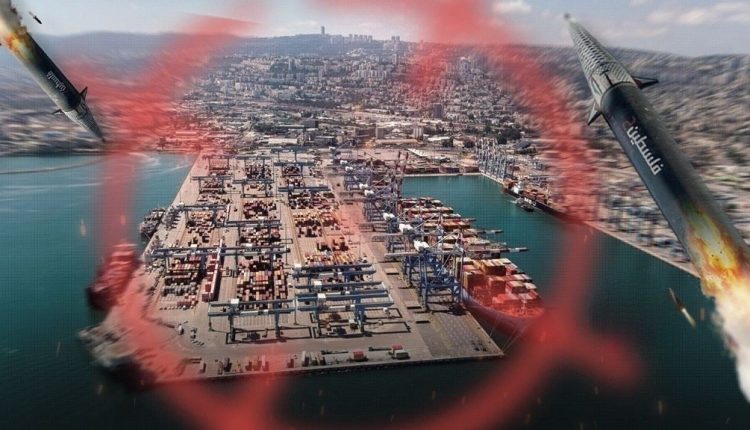Yemeni Threats Terrorize Haifa and Disrupt Israeli Industry
Yemeni threats have taken on an escalating strategic dimension, transforming Houthi attacks in the Red Sea into direct security and economic repercussions deep within Israel. Hebrew economic media outlets, led by Globes, acknowledge that the port of Haifa is facing increasing commercial isolation due to global shipping companies’ concerns about security risks, foretelling the imminent paralysis of one of the most important arteries of the Israeli economy.
Israeli port officials have acknowledged receiving extensive inquiries from companies seeking safety guarantees for their ships before docking in Haifa, raising insurance costs and placing the maritime sector in a state of cautious anticipation.
At the same time, the Yemeni air embargo on Ben Gurion Airport (Lod) has resonated widely within Israeli industry, resulting in the cancellation of international flights, including British Airways, and the accusation that insurance companies have classified Israel as a high-risk area since the first Yemeni missiles.
This escalation is no longer a fleeting tactical reaction, but rather part of a precise, long-term Yemeni strategy aimed at imposing a clear political will and demonstrating that any participation in the aggression against Gaza or Yemen will face direct consequences for the Israeli economy and security.
Even advanced defense systems such as the Iron Dome and Arrow systems have failed to repel Yemeni airstrikes, according to Hebrew military analysts, leaving the political leadership bewildered in the face of a disgruntled population and a government seemingly incapable of securing the airspace and economy.
Public concern is growing over the Netanyahu government’s performance in maintaining the stability of industry and air freight, and Hebrew newspapers have called for an end to the policy of denial and urgent action to address the escalating Yemeni threat.
This development reflects a fundamental shift in the regional balance of power: Israel, accustomed to striking without being struck, finds itself in an unprecedented defensive position against a Yemeni force that possesses an iron will and a qualitative deterrent capability.
With Yemeni missiles approaching Haifa and Ben Gurion within the target range, Sana’a is proving itself an indispensable regional player, and that the security of straits, sea lanes, and airspace is no longer the sole preserve of American or Israeli power.
Finally, Yemen is writing a new chapter in the equation of deterrence, affirming that free peoples are capable of imposing their will on powerful forces, regardless of their arsenal or Western political support.

